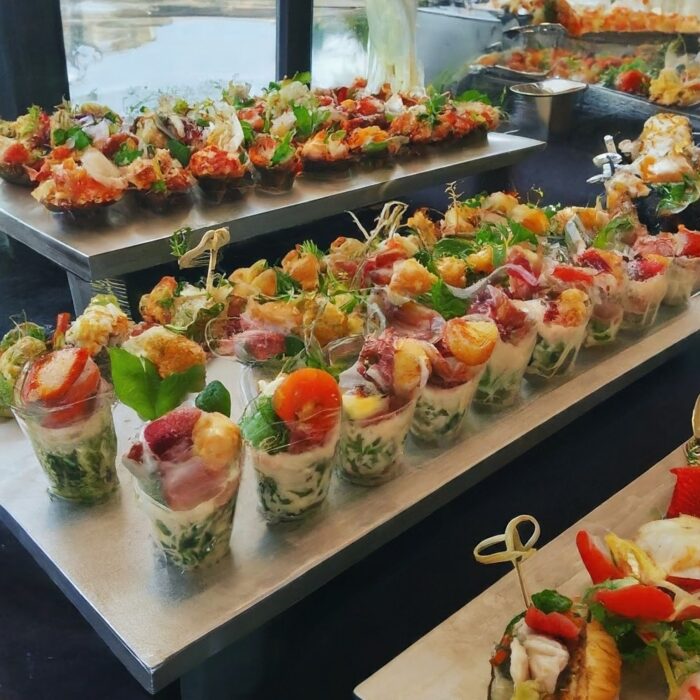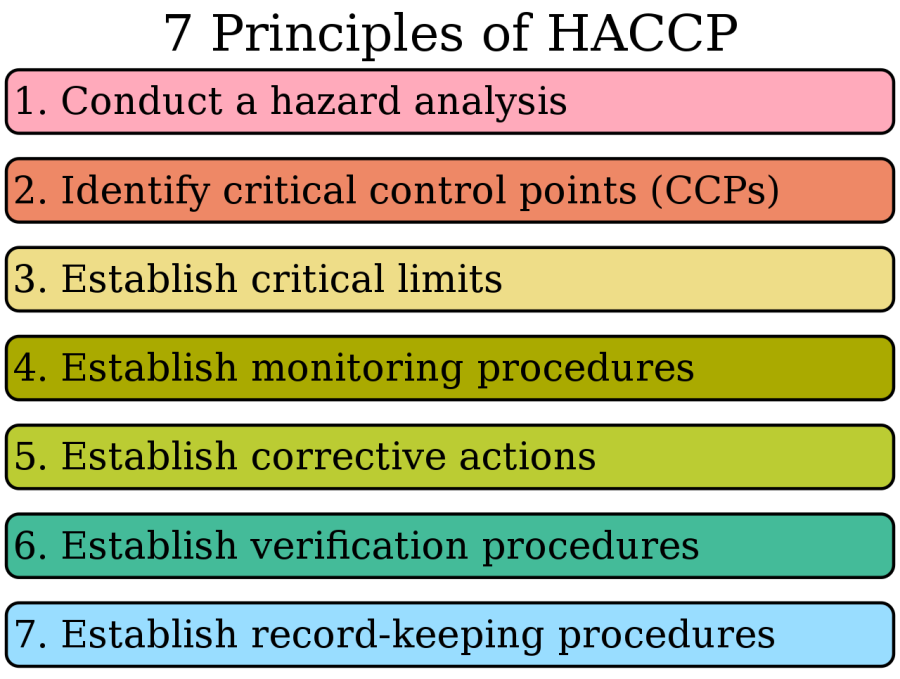
A display of cocktail dishes.
Organizing a successful event requires meticulous planning, keen attention to detail, and seamless execution. Catering is a crucial component that significantly contributes to the overall experience of guests.
Whether you are hosting an intimate gathering or a grand celebration, effective event planning and management can ensure that your catering services are top-notch. Below are essential tips for mastering the art of catering in event planning and management.
Understanding Your Audience
Before diving into the intricacies of catering, it is vital to understand the preferences and expectations of your guests. Different events attract distinct audiences, and their tastes can vary widely.
Identifying Guest Preferences
Conduct surveys or interviews if necessary to gather information on dietary restrictions, food allergies, and cuisine preferences. This step ensures that you cater to all guests, including those with specific needs like vegetarian, vegan, gluten-free, or halal options.
Analyzing the Event Type
The nature of the event—be it a corporate gathering, wedding, or casual party—will heavily influence your catering choices. Corporate events may require more formal dining options, whereas social gatherings might allow for creative and relaxed cuisine styles.
Planning the Menu
The menu is the highlight of any catered event. A well-balanced menu not only satisfies the diverse tastes of your guests but also reflects the theme and purpose of the event.
Seasonality and Freshness
Opt for seasonal ingredients to ensure freshness and quality. Incorporating local produce can also enhance the taste and reduce costs. A menu that changes with the seasons can add a unique touch to your event, offering guests an experience tied closely to the time of year.
Variety and Balance
Provide a balanced selection of appetizers, main courses, sides, and desserts. Include both light and hearty options to cater to different appetites. Ensure a mix of vegetarian and non-vegetarian dishes to accommodate varying dietary preferences.

A display of small chops.
Signature Dishes
Adding a personalized touch with a signature dish or drink can make your event memorable. This could be a special recipe that ties into the event’s theme or a unique cocktail that symbolizes the occasion.
Managing Logistics
Effective logistical planning is the backbone of successful catering at any event. It involves a multitude of considerations, from kitchen setup to guest service.
Kitchen Setup and Equipment
Assess the event venue’s kitchen facilities and equipment. If necessary, arrange for portable kitchen solutions to handle cooking and serving efficiently. Ensure you have adequate refrigeration and storage for perishable items.
Staffing
Hiring an experienced and professional catering staff is essential. From chefs to servers, each role is crucial in ensuring smooth operations. Train your staff to handle different aspects of the event, including setup, service, and cleanup.
Timelines
Create a detailed timeline that includes food preparation, transportation, and setup. Coordinate with your team to make sure everyone is aware of their responsibilities and time allocations. Buffer times should be built into the schedule to account for any unforeseen delays.
Budget Considerations
While planning an upscale menu might be tempting, it is pivotal to stay within your allocated budget without compromising quality.
Cost-Effective Menu Planning
Choose dishes that are delicious yet cost-effective. Bulk purchasing of ingredients and negotiating with local suppliers can also help in managing costs. Use versatile ingredients that can be included in multiple dishes to streamline procurement and reduce waste.
Portion Control
Accurate portion control can prevent both shortages and wastage. Estimate the number of guests and plan portions accordingly. Offering a buffet-style service can provide flexibility while controlling portions and costs.
Hidden Costs
Be aware of hidden costs such as linens, glassware, and service charges. Incorporate these into your budget to avoid any last-minute surprises. Transparent communication with vendors can help you understand and manage these additional expenses.
Ensuring Quality and Presentation
The presentation of food plays an equally significant role as its taste in enhancing the guest experience.
Professional Presentation
Invest in stylish serving ware, elegant table settings, and attractive food displays to elevate the visual appeal of your catering service. Professional presentation can make even simple dishes appear luxurious and appetizing.
Consistency and Quality Control
Maintain strict quality control throughout the preparation and serving process. Regularly taste-test the dishes to ensure consistency in flavor and presentation. Implementing a standard operating procedure (SOP) can help in maintaining consistent quality.
Hygiene and Safety
Adhere to stringent hygiene standards to ensure the safety of your guests. This includes proper food handling, storage, and serving practices. Conduct regular checks and training sessions for your staff to ensure compliance with health regulations.
Feedback and Continuous Improvement
Soliciting feedback from guests can provide invaluable insights into areas of improvement for future events.
Post-Event Surveys
Post-event surveys can help gather quantitative and qualitative feedback on your catering service. Questions regarding food quality, variety, presentation, and overall satisfaction can highlight what worked well and what needs enhancement.
Debriefing Sessions
Hold debriefing sessions with your catering team to discuss challenges faced and lessons learned. This collaborative reflection can help in refining your processes and strategies for future events.
Continuous Learning
Stay updated with the latest trends and advancements in the catering industry. Attending workshops, training sessions, and networking with fellow professionals can keep you ahead in the game.
In summary, effective catering involves a delicate balance of understanding your audience, meticulous planning, efficient management, and continuous improvement. By following these tips, you can ensure a seamless and unforgettable catering experience for your guests, contributing significantly to the success of your event.





